Trump seeks emergency court action to block transgender people from joining the military
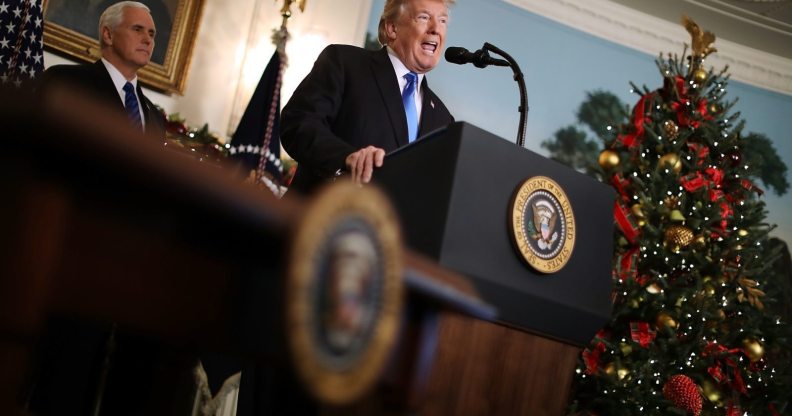
WASHINGTON, DC – DECEMBER 06: U.S. President Donald Trump announces that the U.S. government will formally recognize Jerusalem as the capital of Israel with Vice President Mike Pence (L) in the Diplomatic Reception Room at the White House December 6, 2017 in Washington, DC. In keeping with a campaign promise, Trump said the United States will move its embassy from Tel Aviv to Jerusalem sometime in the next few years. No other country has its embassy in Jerusalem. (Photo by Chip Somodevilla/Getty Images)
The Trump administration is seeking an emergency injunction to block transgender troops from enrolling in just 26 days.
Donald Trump announced on Twitter earlier this year that all transgender servicepeople would be banned from the US armed forces, claiming they were a burden on the military.
The policy led to a deluge of lawsuits, and last month a DC judge prevented Trump from blocking an already-written directive to actively permit the enrolment of transgender people.
The directive, which was drafted under President Obama and sets out the criteria for recruitment of transgender people, is set to come into force on January 1.
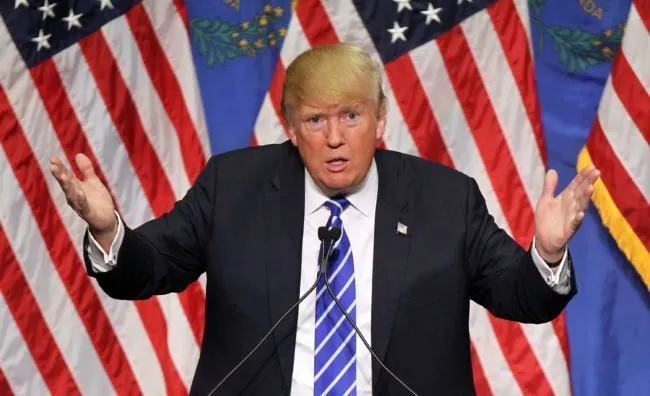
(Photo by Isaac Brekken/Getty Images)
Today, the Trump administration went to court in a bid to block the directive from taking force, by seeking to stay to the judge’s original ruling while an appeal is in process.
The Department of Justice is hoping that if granted, the stay will allow them to extend the ban on transgender troops beyond January 1 while the legal disputes continue.
It says: “Defendants request that the Court stay the portion of its preliminary injunction requiring Defendants to begin accessing transgender individuals into the military on January 1, 2018, pending a decision by the D.C. Circuit on Defendants’ appeal.
The move comes after the Pentagon confirmed it was “taking steps” to comply with the court ruling, paving the way for trans troops to be accepted
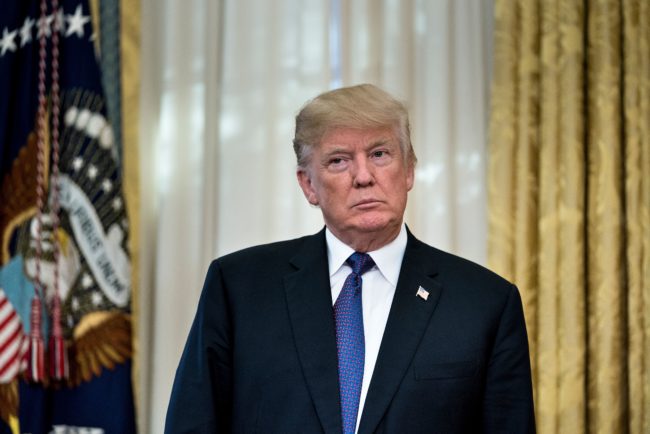
(Getty)
Earlier this week a Pentagon spokesperson confirmed: “While reviewing legal options with the Department of Justice, the Department of Defense is taking steps to be prepared to initiate accessions of transgender applicants for military service on January 1, 2018, per recent court orders.”
It is unclear exactly how many trans people will be rushing to sign up, however, given the extremely uncertain situation and the live legal battles that could quickly end their careers.
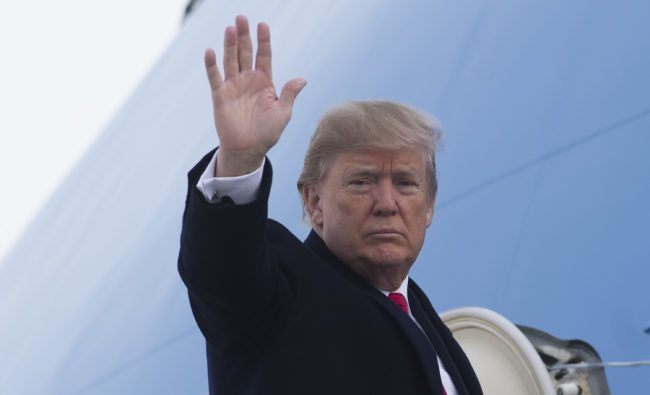
(Getty)
US District Judge Colleen Kollar-Kotelly issued the order imposing the January 1 deadline.
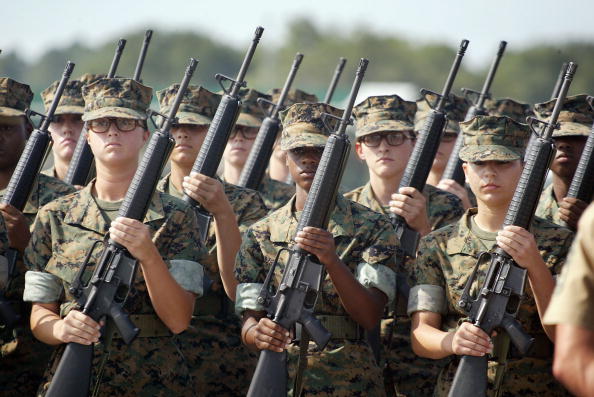
Marine Corps recruits practice drill (Photo by Scott Olson/Getty Images)
She wrote: “[Existing] policies allowed for the accession of transgender individuals into the military beginning on January 1, 2018.
“Any action by any of the Defendants that changes this status quo is preliminarily enjoined.”
Trump stirred anger by announcing in July that he would impose a ban on transgender soldiers serving openly in the military.
He claimed in a string of tweets that the military “cannot be burdened with the tremendous medical costs and disruption that transgender in the military would entail”.
But Kollar-Kotelly ruled that a lawsuit brought against the proposed ban by five active soldiers with more than 60 combined years of service was likely to win.
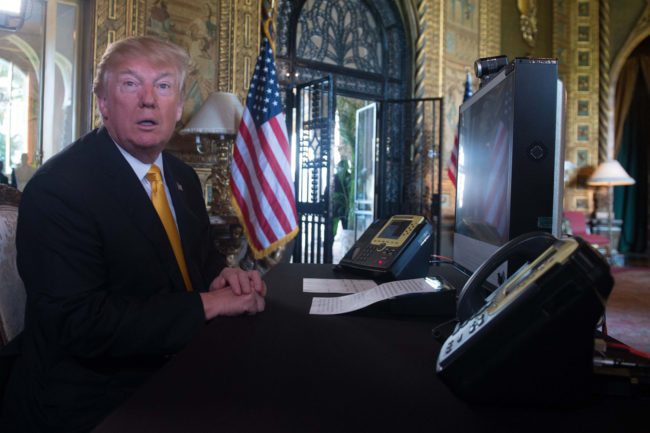
(Getty)
In a separate legal battle District Judge Marvin J. Garbis went further, enabling trans troops who have scheduled transition-related medical care to continue with their treatment with no deadline.
The Maryland judge ruled that Trump’s potential prohibition was “egregiously offensive,” with no evidence to show it “was necessary for any legitimate national interest.”
The case, brought by the ACLU of Maryland on behalf of six soldiers, led District Judge Garbis to state that Trump’s ban “was not driven by genuine concerns regarding military efficacy.”
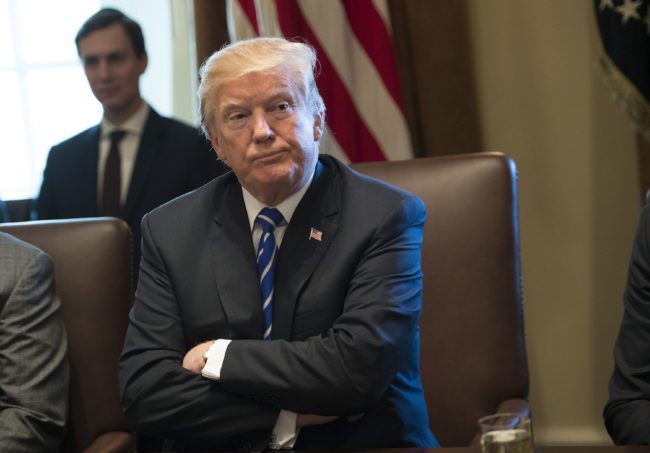
(Getty)
He added the proposal was a betrayal of trans troops who were already serving, and one which could not even “survive a rational review” in court.
“The lack of any justification for the abrupt policy change,” he wrote, “combined with the discriminatory impact to a group of our military service members who have served our country capably and honorably, cannot possibly constitute a legitimate governmental interest.”
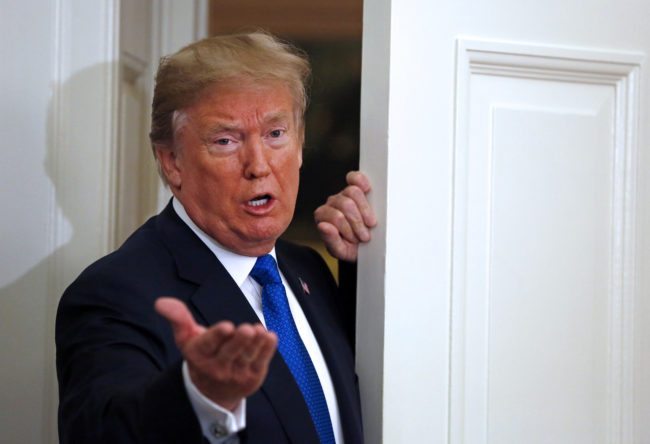
(Getty)
He said that for Trump to remove constitutionally given freedoms from a group of individuals was “so outrageous” as to “shock the conscience.”
Garbis tore into Trump’s inflammatory tweets specifically, writing that his sudden announcement “certainly can be considered shocking under the circumstances.”

